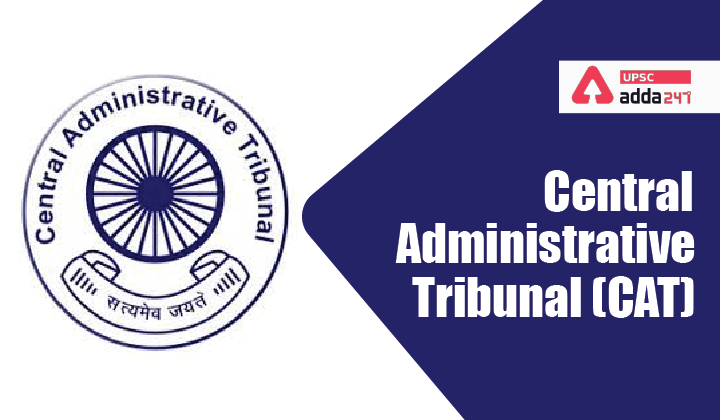Table of Contents
Central Administrative Tribunal (CAT)- Relevance for UPSC Exam
- GS Paper 2: Indian Constitution- Appointment to various Constitutional posts, powers, functions and responsibilities of various Constitutional Bodies.
Central Administrative Tribunal (CAT)- Context
- Recently, the Union Minister of State (Independent Charge) of Science & Technology inaugurated a separate Bench of Central Administrative Tribunal (CAT) at Srinagar to deal exclusively with service matters of government employees.
- With this, Jammu and Kashmir have become the only State/UT in the country to have two CAT Benches- Srinagar bench and Jammu bench.
National Sports Awards 2021: Sports and Adventure Awards 2021 and List of Winners
Central Administrative Tribunal (CAT)- Key Points
- Background: The Parliament of India created the Central Administrative Tribunal (CAT) under Article 323- A of the Indian Constitution by the Administrative Tribunals Act, 1985.
- The Administrative Tribunals Act in 1985 provides for Central government to establish one Central Administrative Tribunal and the state administrative tribunals.
- Constitutional Provision: Article 323A provides for Central Administrative tribunals. Under it, only parliament can establish the Central Administrative tribunal and not the State Legislatures.
- Article 323B: it deals with other tribunals, and enables such tribunals to be formed both by the Parliament and the State Legislatures.
- About: The Central Administrative Tribunal is a specialist body consisting of Administrative Members and Judicial Members who by virtue of their specialized knowledge are better equipped to dispense speedy and effective justice.
- Principal bench of Central Administrative Tribunal: It is located at New Delhi, India.
- Other branches: There are 17 Benches and 21 Circuit Benches in the Central Administrative Tribunal all over India.
- Mandate of CAT: Central Administrative Tribunals are expected to adjudicate matters related to the recruitment and conditions of service of personnel engaged in public service in the country.
Classification of Directive Principles of State Policy (DPSPs)
Central Administrative Tribunal (CAT)- Power, and Jurisdiction of CAT
- Jurisdiction: The Central Administrative Tribunal (CAT) exercises original jurisdiction over all service matters of the following services:
-
- Members of the all-India services.
- Persons appointed to any civil service of the Union or civil post under the Union.
- Civilians appointed to any defence services or posts related to defence.
- Employees of PSUs or public sector organizations were notified by the government.
- Exceptions: The Central Administrative Tribunal (CAT) does not have any jurisdiction over the members of the defence forces, officers, Supreme Court staff, and Parliament’s secretarial staff.
- Powers: The Central Administrative Tribunal has been conferred the power to exercise the same jurisdiction and authority regarding contempt of itself as a High Court.
- Appeals against orders of the Central Administration Tribunal: Appeals against the orders of a tribunal could be made in the High Court and not the SC directly.
- In Chandra Kumar Case, 1997, the Supreme Court of India upheld the jurisdiction of High Courts over the appeals from the Central Administration Tribunals.
Foreign Contribution (Regulation) Act (FCRA)
Central Administrative Tribunal (CAT)- Appointment and Composition
- Appointment: The Chairperson and members of the Central Administrative Tribunal (CAT) are appointed by the President of India.
- Composition: The CAT is a specialist body that consists of Administrative Members and Judicial Members. The members of the Central Administrative Tribunals are-
- Chairperson: S/he who has been a sitting or retired Judge of a High Court heads the Central Administrative Tribunal.
- Tenure: Chairperson of the Central Administrative Tribunal (CAT) enjoys a tenure of 5 years or 65 years of age, whichever is earlier.
- Chairperson: S/he who has been a sitting or retired Judge of a High Court heads the Central Administrative Tribunal.
Also, Read




 TSPSC Group 1 Question Paper 2024, Downl...
TSPSC Group 1 Question Paper 2024, Downl...
 TSPSC Group 1 Answer key 2024 Out, Downl...
TSPSC Group 1 Answer key 2024 Out, Downl...
 UPSC Prelims 2024 Question Paper, Downlo...
UPSC Prelims 2024 Question Paper, Downlo...





